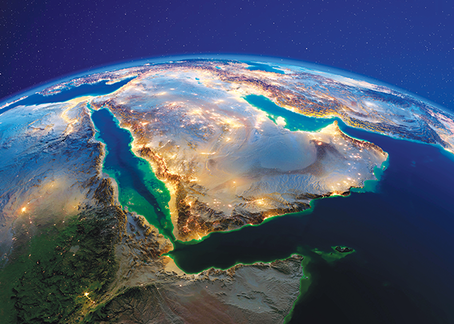The Gulf Cooperation Council (GCC), comprised of Saudi Arabia, the UAE, Kuwait, Qatar, Bahrain, and Oman, is a region undergoing rapid transformation, offering a wealth of opportunities for businesses. Rich in natural resources, these countries are also strategically positioning themselves as hubs for global commerce and innovation.
Favorable Business Environment
The GCC countries are known for their pro-business policies, offering low tax regimes, government incentives, and streamlined processes for foreign investment. These initiatives have positioned the region as an attractive destination for international companies looking to expand into new markets.
Economic Diversification
Historically dependent on oil and gas, the GCC countries are actively diversifying their economies. Initiatives such as Saudi Arabia’s Vision 2030 and the UAE’s focus on innovation and technology are paving the way for new sectors to thrive. The shift towards finance, healthcare, tourism, renewable energy, and technology is creating a wealth of opportunities for businesses across a wide range of industries.
Strategic Location
The GCC’s strategic location at the crossroads of Europe, Asia, and Africa makes it a key global hub for trade and logistics. Dubai International Airport (DXB) is a testament to this, having consistently ranked as the busiest airport in the world for international passengers. In 2019, it handled around 89.1 million passengers, and despite the pandemic, it bounced back to welcome 66 million passengers in 2022 (Gulf Business)(Gulf Business). By 2023, DXB maintained its dominance with a record 86.9 million passengers, highlighting Dubai’s crucial role in global travel (GulfNews).
Dubai’s ports are just as significant. DP World, with its 78 marine and inland terminals worldwide, is instrumental in making the UAE a major logistics hub, while Abu Dhabi Ports‘ continued investment in Khalifa Port underscores the UAE’s commitment to leading in global maritime trade(Gulf Business).
Rapid Population Growth and Urbanization
With a growing population driven by both local citizens and a large expatriate community making up more than 50% of the total population, the GCC population has nearly doubled in the last 20 years.
Dubai’s population has been increasing steadily, with a growth rate of 1.43% annually to date. The city has also become a top destination for high-net-worth individuals hosting approximately 68,400 millionaires and attracting an additional 3,500 millionaires in 2022 alone. This influx of affluent expatriates is fueling demand for luxury real estate, high-end services, and world-class healthcare, further enhancing Dubai’s vibrant market.
Government Investment and Infrastructure Development
Governments in the GCC are heavily investing in infrastructure, from transportation and energy to smart cities. Saudi Arabia, in particular, is leading a wave of infrastructure and tourism projects as part of its Vision 2030 strategy. The country is developing monumental projects such as NEOM, a futuristic smart city, and the Red Sea Project, which is expected to boost tourism significantly. These projects aim to transform Saudi Arabia into a global tourism and business destination.
Focus on Sustainability and Renewable Energy
As the GCC prepares for a post-oil future, many countries in the region are heavily investing in renewable energy projects and sustainability initiatives. This commitment to green technologies and innovation is opening doors for businesses in sectors such as clean energy, sustainable construction, and environmental innovation.

